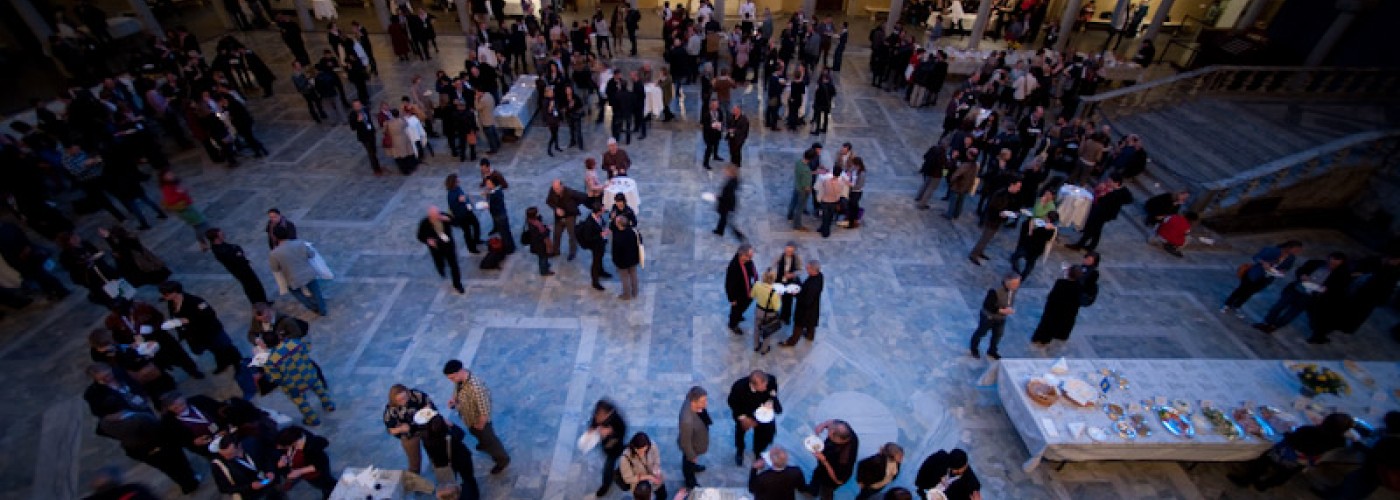On art and democracy
This year the word ”revolution” has passed many peoples lips. After years of oppression the people of Tunisia and Egypt suddenly began to openly revolt in the streets, resulting in the fall of
dictators.In Belarus mass protests broke out in support of oppositional candidates. In Iran the people continue their ”green revolution”. The aim of this meeting was to discuss the part that culture has
taken in the people’s revolts. What are the artists and producers views on current events, how has it affected their work and what are the hopes and ideas for the future?
The Independent Story: Living and Working as an Independent in the Field of Cultural Management
Many people were interested in standards of pay and work for independents which were in place, and it was determined that nearly every country does indeed have a national set standard of
pay, which managers and producers should receive. However, the governmental organizations which assure that these standards are met or provides the funding to do so, are rare or nonexistent.
EASY ADMIN-Administrative Support for Independent Art Workers
What kind of administrative support, in terms of taxation, social contributions and fiscal advice do these art workers need and how do they get it? In some countries the state provides help or at
least funds it, in others it is up to non-governmental and non-funded organizations to offer such support services. Moderator Ruth Collier (Kunsten Festival des Arts, Brussels) encouraged us all to
be creative and think of alternative or new structures that can benefit the freelance or independent artists. The artists need to be able to develop their artistic potential but in a sustainable way.
Situation of freelancers in Slovenia
In Slovenia freelancers are not considered workers but employers or self-employed. Therefore they are not subject to Labour legislation but to Civil and obligatory law. The wages and work conditions are negotiated individually and submit to market competition. Creative workers get state subsidy for social security when they earn less than € 21.000 per year. The subsidy covers minimal social security. Freelancers realise that when they are about to retire with minimal pension. As employers, they have to cover themselves first 30 working days of sick leave and then they receive minimal reimbursement from social security found for limited time.
Freelance and employed theater work in the independent sector in Austria
To work as a freelancer is not only common, but a necessity, however, it is not really legal. The number of investigations by the social insurance system is continually rising. To sum it up, you have a segment a number of larger houses with regularly employed ensembles, a huge number of smaller houses with almost exclusively freelance actors (which is illegal) and a high number of independent groups who argue, that since they work as a group without a hierarchical structure, they should be allowed to work as freelancers.
Music theatre
This is the second meeting of the Music Theatre practitioners group, the first meeting took place during the IETM Plenary Meeting in Glasgow. The main purpose for this meeting is to discuss the aims of the group, how often it will meet and how the participants will communicate.Since the allocated time is restricted to 90 minutes, there is
not time for full introductions of the whole group and their work. This will be undertaken at future meetings. The group will be a sub-network of IETM, and as there are already similar networks in
place, the question is what will be specific to this group?
Elastic organizations
The 4 panel-members in the discussion around “elastic organizations” represented 4 very different organizations: a Belgian city theatre, a Swedish nationwide theatre, a Korean company and
a Balkanian network. We soon discovered what they had in common: in recent years these organizations had grown or transformed themselves profoundly, being as such “models of
elastic organizations”.
Progress Report from thematic working group
The idea with this report is to make available the working group’s discussions during Fall 2010, and that it will constitute the basis for further decisions regarding more stringent forms for the overall themes, and framing the activities. Starting in January 2011, the proposed program will gradually become more set, proposed participants will be contacted and logistics arranged. The IETM Stockholm organization will as soon as possible recruit a new project manager, due to sick leave of the initial project manager, Eva Broberg.

